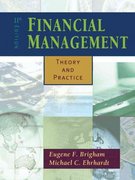Ben graduated from college six years ago with a finance undergraduate degree. Although he is satisfied with his current job, his goal is to become an investment banker. He feels that an MBA degree would allow him to achieve this goal. After examining schools, he has narrowed his choice to either Mount Perry College or Wilton University. Although internships are encouraged by both schools, to get class credit for the internship, no salary can be paid. Other than internships, neither school will allow its students to work while enrolled in its MBA program. Ben currently works at the money management firm of Dewey and Louis. His annual salary at the firm is $75,000 per year, and his salary is expected to increase at 3 percent per year until retirement. He is currently 28 years old and expects to work for 40 more years. His current job includes a fully paid health insurance plan, and his current average tax rate is 27 percent. Mount Perry College began its MBA program 16 years ago. The MBA degree requires two years of full-time enrollment at the university. The annual tuition is $70,000, payable at the beginning of each school year. Books and other supplies are estimated to cost $3,000 per year, also payable at the beginning of each school year. Ben expects that after graduation from Wilton, he will receive a job offer for about $110,000 per year, with a $20,000 signing bonus. The salary at this job will increase at 4 percent per year. Because of the higher salary, his average income tax rate will increase to 31 percent. Wilton University offers one of the top MBA programs in the country. Wilton offers an accelerated, one-year program, with a tuition cost of $80,000 to be paid upon graduation. Books and other supplies for the program are expected to cost $5,000, payable at the beginning of the school year. Ben thinks that he will receive an offer of $92,000 per year upon graduation, with a $18,000 signing bonus. The salary at this job will increase at 3.5 percent per year. His average tax rate at this level of income will be 29 percent. Both schools offer a health insurance plan that will cost $3,000 per year, payable at the beginning of the year. Ben also estimates that room and board expenses will cost $2,000 more per year at both schools than his current expenses, payable at the beginning of each year. The appropriate discount rate is 6.3 percent per year. 1. Assuming all salaries are paid at the end of each year, what is the best option for Benfrom a strictly financial standpoint? 2. Dewey and Louis herd about Ben's plans and want to make him an offer that will keep him at his current position. What would the new annual salary be? Assume a tax rate of 31 percent 3. What other, perhaps nonquantifiable factors can affect Ben's decision to get an MBA? 1. Health, boarding, supply expenses are in terms of incremental costs. 2. For question 2, the company will match the highest MBA PV








